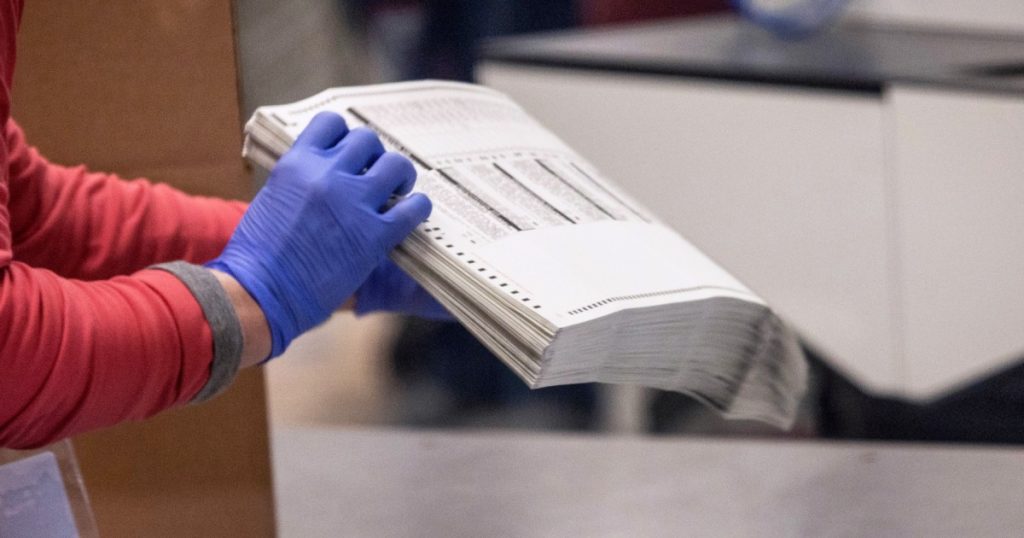The Arizona Supreme Court has ruled in favor of allowing approximately 98,000 individuals whose voter registration status was in limbo to participate in the full election ballot in November. The issue arose after a clerical error from 2004 was discovered by the Maricopa County Recorder’s office, which granted these Arizonans voting registration status without documented proof of citizenship. This decision was celebrated by Arizona’s Democratic secretary of state, Adrian Fontes, who praised the court for their prompt resolution of the matter.
The error stemmed from a misinterpretation of state law at the time, which required documentary proof of citizenship in order to register to vote. Residents who received driver’s licenses prior to 1996 and later received replacement IDs were wrongly considered to have proof of citizenship on file with the Motor Vehicle Division. As a result, these voters never had to comply with stricter regulations imposed in 2004, leading to their uncertain voting status. The Arizona Supreme Court’s decision emphasized the importance of not disenfranchising voters en masse and upheld the principle of due process.
Maricopa County Recorder Stephen Richer filed a lawsuit to address the issue and worked with Fontes to find a resolution. Both officials welcomed the court’s decision, expressing gratitude for allowing the 98,000 voters to participate in the upcoming election. Arizona GOP Chair Gina Swoboda also commended the court’s ruling, emphasizing the importance of protecting the voices of nearly 98,000 voters at risk of being disenfranchised. Swoboda’s support for this decision highlights an unusual bipartisan coalition of election officials coming together on this issue.
With early voting set to begin in Arizona on Oct. 9, Fontes’ office argued that the affected voters should be able to cast their ballots at both the federal and local levels. Richer’s office initially contended that these voters should only participate at the federal level. Despite their differing perspectives, all parties involved in the lawsuit ultimately agreed that allowing these voters to fully participate in the election was the right decision. The court’s ruling reflects a collective recognition of the responsibility to ensure that all eligible voters are able to exercise their right to vote.
Swoboda, who has been critical of Arizona’s voting processes, particularly emphasized the need for public oversight of voter rolls. However, in this case, she aligned herself with Fontes and other officials in advocating for the inclusion of the 98,000 affected voters in the election. Swoboda’s support for the court’s decision underscores the shared commitment among election officials to prioritize the protection and inclusion of all eligible voters. The resolution of this issue with just weeks before early voting begins demonstrates the collaborative efforts of officials from across the political spectrum to uphold the integrity of the voting process in Arizona.












